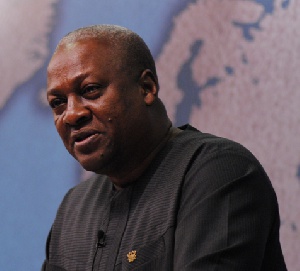A former Deputy Attorney-General and Minister of Justice has explained that President John Mahama is not bound by whatever recommendations the Council of State would come out with on the petition to pardon the Montie FM trio.
Lawyer Kwame Osei Prempeh, who is also a Constitutional Lawyer, explained that “it is not a proper case to pardon them” even though the constitution gives room for President to pardon people.
The former Member of Parliament for Nsuta-Kwaman-Beposo Constituency was commenting on President Mahama’s decision to seek the opinion of the Council of State on the petition presented to him by the lawyers of the Montie trio.
The Chief of Staff, Julius Debrah, on Monday, August 8 presented the petition to the Council of State on behalf of the president.
The petition is asking for a presidential pardon for the Accra-based radio host and two panelists, who are serving four months in prison for contempt of court.
Chief of Staff Julius Debrah, who received the petitions on behalf of President John Mahama last week, forwarded same to the Council of State, who the President is mandated to consult by law before giving such presidential pardon. Lawyer Kwame Osei Prempeh said:
“I am surprised about the president’s decision to submit the petition to the Council of State because we thought he could have shelved it since it is not something the President must do”.
He added: “President Mahama is consulting, so what the Council of State will recommend is not binding on the President”.
Lawyer Osei Prempeh said the Council of State will have to listen to what the society or public is saying about the issue, citing the case of notorious armed robber who was jailed for life, Ataa Ayi.
“Ataa Ayi is now the Chaplain at the prisons but that does not mean should petition the President to free him”.
The process to pardon a prisoner is in 1992 Constitution, Article 72(1) which states: “The President may, acting in consultation with the Council of State- (a) grant to a person convicted of an offence a pardon either free or subject to lawful conditions; or (b) grant to a person a respite, either indefinite or for a specified period, from the execution of punishment imposed on him for an offence; or (c) substitute a less severe form of punishment for a punishment imposed on a person for an offence; or (d) remit the whole or part of a punishment imposed on a person or of a penalty or forfeiture otherwise due to Government on account on any offence.”
General News of Tuesday, 9 August 2016
Source: 3news.com
Mahama not bound by Council of State recommendation – Former AG
Entertainment












